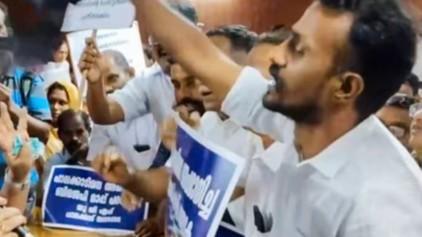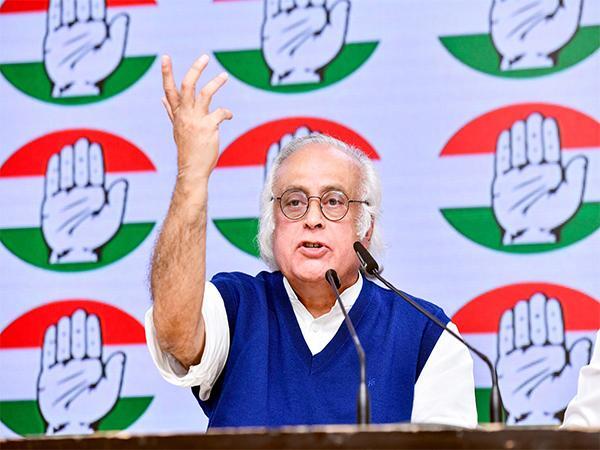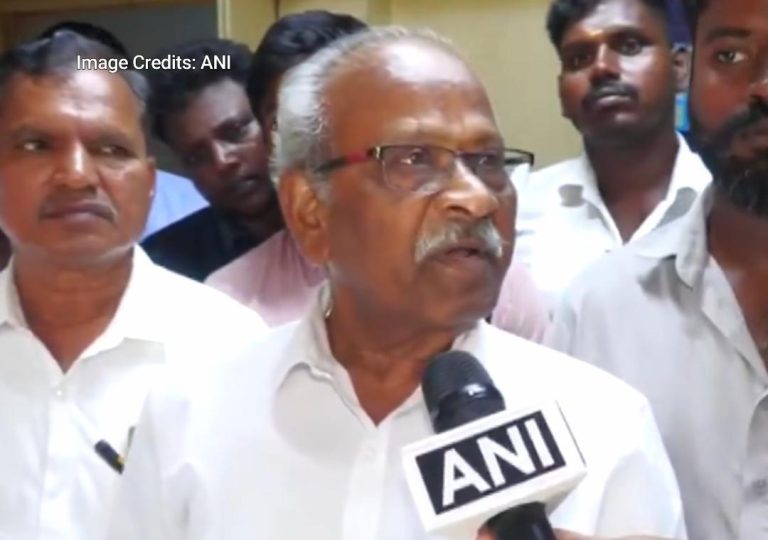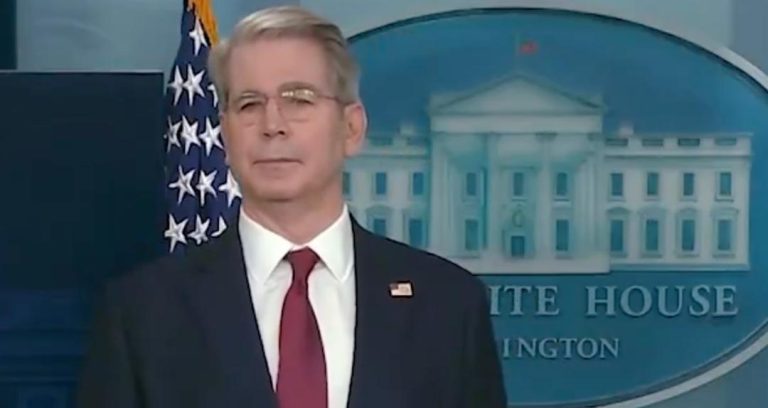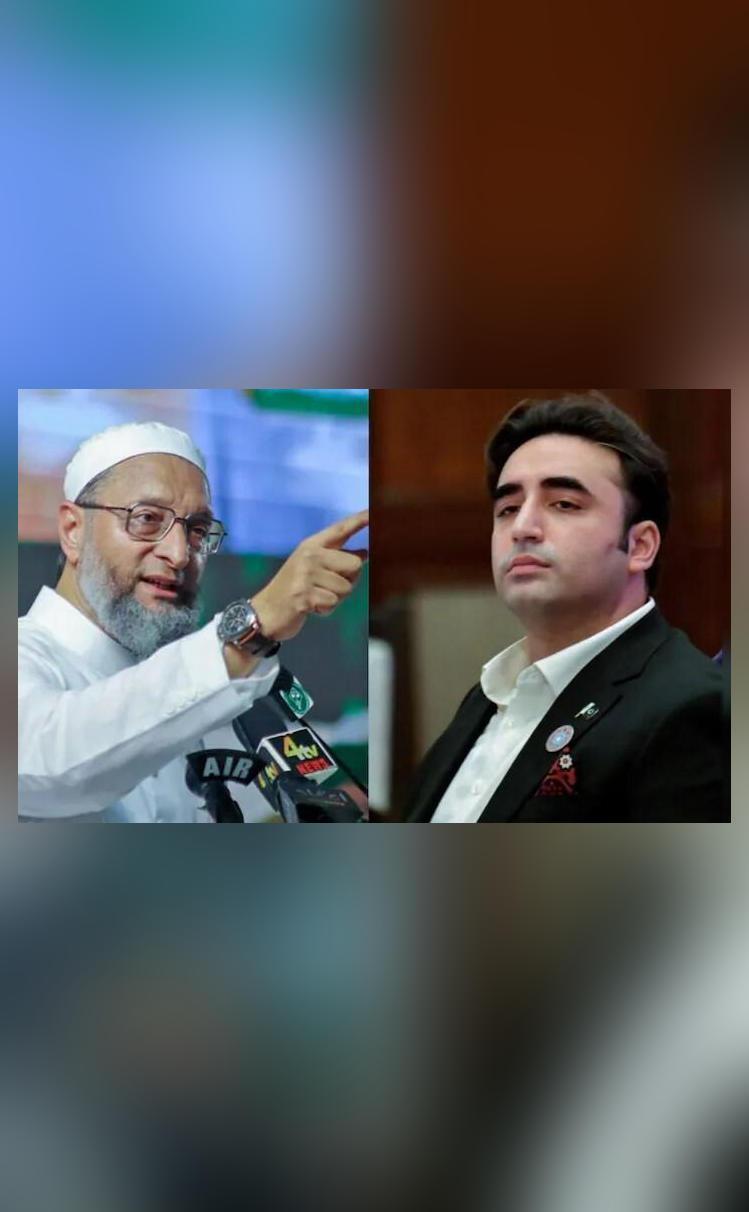
You Can’t Run Pakistan Without US Help & You’re Trying to Stare Us Down: Owaisi to Bhutto
In the midst of escalating tensions between India and Pakistan, a war of words has erupted between AIMIM chief Asaduddin Owaisi and Pakistani politician Bilawal Bhutto. The latest salvo in this verbal exchange came when Owaisi responded to Bhutto’s “blood will flow” remark, saying that Pakistan cannot run the country without US assistance and that Bhutto is trying to stare down India.
The controversy began when Bhutto, the chairman of the Pakistan Peoples Party (PPP), made a statement in Pahalgam, Kashmir, in which he said, “Indus is ours…either our water will flow…or their blood.” The statement was seen as a threat to India, particularly in the context of the ongoing dispute over the Indus Waters Treaty.
Owaisi, however, responded with a scathing critique of Bhutto’s statement, saying that Pakistan is unable to run the country without the support of the United States. “Unless US gives you something, you cannot run the country and you’re trying to stare us down,” Owaisi stated.
But what lies behind Bhutto’s statement? In an interview with a Pakistani news channel, Bhutto explained that his remark was a response to the recent Pahalgam attack, in which a group of terrorists targeted a group of Hindu pilgrims, killing several people. “Terrorism killed [his mother]…If he doesn’t get that, what will you explain to him?” Owaisi added, referencing the assassination of Bhutto’s mother, Benazir Bhutto, in 2007.
Owaisi’s comments are a stark reminder of the deep-seated issues that exist between India and Pakistan. The two countries have a long history of conflict, dating back to the partition of British India in 1947. Since then, the two nations have fought several wars, including the Indo-Pakistani War of 1965 and the Indo-Pakistani War of 1971.
In recent years, tensions between the two countries have only increased, with the Indian government accusing Pakistan of sponsoring terrorism in Kashmir and Pakistan denying these allegations. The Pahalgam attack is just the latest in a series of incidents that have raised concerns about the safety and security of Indian citizens in Kashmir.
But what does Owaisi’s statement say about the relationship between the United States and Pakistan? On the one hand, Pakistan has long been a key ally of the United States in the war against terrorism. The US has provided significant economic and military assistance to Pakistan, and the two countries have cooperated on a range of security issues.
On the other hand, the US has also been critical of Pakistan’s handling of terrorism, and has accused the country of providing safe haven to terrorist groups such as the Taliban and Al-Qaeda. In recent years, the US has reduced its assistance to Pakistan, citing concerns about the country’s lack of progress in combating terrorism.
In this context, Owaisi’s statement can be seen as a reflection of Pakistan’s dependence on the US for support and assistance. Despite its claims of being a sovereign nation, Pakistan is heavily reliant on the US for military and economic aid, and its government is under pressure to demonstrate its commitment to combating terrorism in order to maintain this support.
But what are the implications of Owaisi’s statement for the future of India-Pakistan relations? On the one hand, the statement can be seen as a sign of the growing tensions between the two countries, and a reflection of the deep-seated mistrust and hostility that exists between them.
On the other hand, the statement may also be seen as a sign of the desperation and frustration that exists in Pakistan, particularly in the context of the ongoing crisis in Kashmir. Pakistan has long been critical of India’s handling of the Kashmir issue, and has accused the Indian government of human rights abuses and violations of international law.
In this context, Owaisi’s statement can be seen as a call to action, urging the Pakistani government to take a more assertive stance in its dealings with India. But whether this approach will ultimately be effective remains to be seen.
In conclusion, the statement made by Bilawal Bhutto and the response given by Asaduddin Owaisi highlight the deep-seated issues that exist between India and Pakistan. The two countries have a long history of conflict, and the relationship between them is marked by mistrust and hostility.
While Owaisi’s statement may be seen as a reflection of Pakistan’s dependence on the US for support and assistance, it also highlights the growing tensions between the two countries. Whether these tensions will ultimately lead to a more assertive stance by Pakistan remains to be seen.
